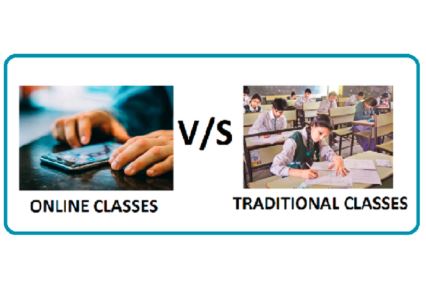Choosing the right path for your college education can shape your future in significant ways. In today’s world, students have more choices than ever—especially when deciding between online and traditional college degrees. Both options offer valuable learning experiences, but the best choice depends on your personal goals, lifestyle, and career plans. Here’s a helpful comparison to guide your decision.
Flexibility and Convenience
One of the biggest advantages of online degrees is flexibility. Online programs are designed to fit around your schedule, allowing you to study from anywhere at any time. This makes them especially appealing to working professionals, parents, or those with other time commitments. In contrast, traditional college programs usually follow a fixed schedule with in-person attendance required, which may be better suited for students who prefer structured routines and face-to-face interaction.
Learning Environment and Experience
Traditional colleges provide a campus experience with classroom learning, peer interaction, and on-campus activities. This immersive environment can foster personal growth, build social networks, and provide access to campus resources. On the other hand, online degrees use digital platforms to deliver lectures, assignments, and discussions, making use of forums, video calls, and other tools to simulate engagement. While different, many students find online learning equally effective—especially with today’s advancements in virtual education technology.
Cost and Affordability
Online programs often cost less than traditional degrees. You may save on commuting, housing, and campus fees. Many accredited online programs also offer financial aid and payment plans. However, traditional colleges may offer more scholarships and on-campus job opportunities. It’s important to compare tuition, fees, and additional expenses when evaluating programs.
Accreditation and Recognition
Whether online or traditional, the value of your degree depends largely on the school’s accreditation. Employers generally accept degrees from properly accredited institutions, regardless of the format. Many respected universities now offer online programs that hold the same recognition as their on-campus counterparts. Always verify accreditation to ensure your degree will be widely accepted.
Career Opportunities and Networking
Traditional colleges often have strong alumni networks, career centers, and internship programs that can open doors to job opportunities. However, online programs are catching up, with many offering career support, virtual networking events, and connections to industry professionals. As more employers embrace remote work, they are also more open to hiring candidates with online degrees.
Conclusion
Both online and traditional college degrees have their strengths. If you value flexibility, self-paced learning, and lower costs, online education might be the right fit. If you prefer face-to-face learning, campus life, and hands-on experiences, a traditional college may be ideal. The most important factor is finding a program that supports your academic and professional goals while fitting into your lifestyle.
Before enrolling, research thoroughly, ask questions, and choose a path that leads you toward success—with confidence and clarity.














